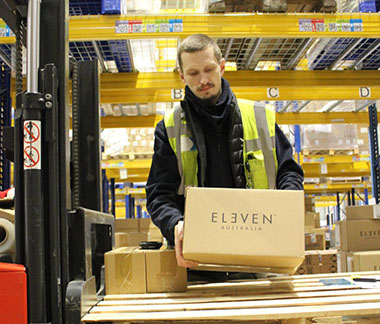What does a standard freight forwarder's contract entail?
What does a standard freight forwarder's contract entail?
Logistics and transport play an essential role in France. In 2021, the turnover recorded for this sector reached 200 billion euros according to a French Transport and Logistics study, i.e. 10% of the national GDP. Given this situation, good management of goods transport is essential to ensure the smooth running of a company. Some companies choose to delegate the routing of their goods by calling on service providers known as freight forwarders.
In a context where digitalisation is gradually gaining ground, it is necessary to provide a framework and harmonise the procedures relating to the organisation of road haulage. This legal framework is set by a freight forwarding contract. What are the obligations of the principal, the freight forwarder and the carrier, and how can this contract be put in place?
Viaposte, as an expert in logistics, industrial maintenance and goods transport, has set out the regulatory framework associated with this transport contract to help you to see more clearly the best course of action for the routing of your flow.
What is a freight forwarder?
Definition of freight forwarder
The freight forwarder is a key player in the field of freight forwarding. He is an invisible intermediary between the company that subcontracts him and the end customer. He undertakes to carry out the transport in compliance with the regulatory framework associated with the profession. Often mistakenly confused with the carrier, the freight forwarder is responsible for the total organisation of the transport and has a free choice in the means he chooses to ensure the optimum performance of his mission. In carrying out his activity, the freight forwarder ensures the safety of those involved, but also the protection of the goods entrusted to him by the company called the principal or shipper. In this sense, the freight forwarder guarantees the optimal delivery of the transported products.
When should a freight forwarder be called in?
According to Article R1411-1 of the Transport Code, the freight forwarder is the sole organiser of a company's goods transport and is involved in several areas of expertise: dispatch, reception, storage and routing of goods.
The operations associated with the transport service can take different forms:
> chartering operations during which the goods are shipped by the freight forwarder who adapts their routing to take account of their particularities in order to guarantee optimum delivery to the customer;
> groupage operations, which bring together several shipments of goods in order to make transport more efficient and avoid incomplete loads. On delivery, the goods are separated;
> city office operations during which the freight forwarder takes retail goods and hands them over to common carriers or to another freight forwarder;
> transport organisation operations carried out by the freight forwarder, who manages the flow of goods to and from France to ensure delivery using various carriers.
These four types of activities are subject to the same regulations detailed in the freight forwarding contract, which aims to regulate the subcontracting of national or international transport of goods.
Regulation of the performance of the freight forwarding contract
What are the obligations of the principal?
The Annex to Article D1432-3 of the Transport Code provides a list of legal obligations to which the principal, also known as the client, must adhere when subcontracting the transport of its goods. Materialised in a digital or paper version, this list must include:
> the nature and purpose of the transport;
> the specific terms and conditions for the performance of the service relating to the transport and collection of the goods;
> the delivery conditions chosen by the customer, such as the address and the date and time of delivery;
> the name of the sender and the recipient;
> details of the goods such as the number of packages or their weight and dimensions in order to optimise space in the transport vehicles;
> the price of transport and additional services provided.
> the nature of the goods and their hazardousness.
This standard freight forwarding contract aims to provide the freight forwarder with the necessary elements for a simplified organisation of transport operations.
What are the obligations of the freight forwarder?
The profession of freight forwarder is highly regulated and is subject to several essential conditions which must be met in order to exercise it:
> the freight forwarder must hold a certificate of professional competence, which can be obtained after training and subject to passing a written examination. Equivalence is possible after five years of professional experience in freight transport;
> the freight forwarder must be able to prove each year that he has sufficient financial capacity, which varies according to the maximum authorised weight (MAW), to launch or maintain his activity;
> the service provider must meet the conditions of good repute subject to the absence of a ban on carrying out his transport activity. The freight forwarder must not have had any administrative or commercial sanctions or convictions;
> the freight forwarder must himself ensure that the subcontractors he uses for the transport of goods are checked and that they are registered in the register of public transporters;
> Registration in the Trade and Companies Register (RCS) is mandatory for carrying out transport operations. The freight forwarder registers as a sole proprietorship or a trading company. The application for registration must be sent to the prefect of the region where the company is based.
In the event of shortcomings attributable to the organiser of road freight transport in the exercise of his activity, such as failure to comply with the regulations, the regional prefect may temporarily or permanently remove the company from the register of freight forwarders.
Viaposte, dedicated freight forwarder for your goods flows
Do you know Viaposte and its tailor-made solutions for managing your goods transport? We make it possible for you to carry out your entire transport activity related to the routing of your items and goods by mobilising the best teams and the most efficient tools on the market. Our company's commitment is expressed in the values we hold dear: adaptability, flexibility, availability and responsiveness. Choose Viaposte for the optimal management of your goods transport.







